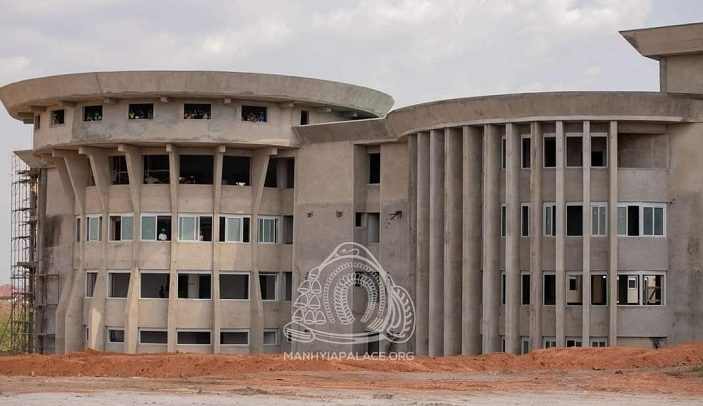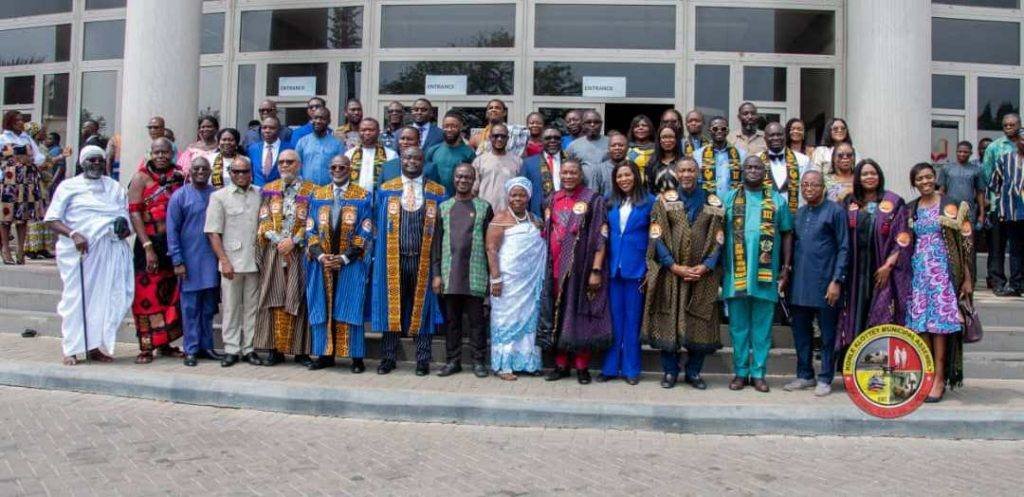
A three-day sanitation and business expo under the auspices of the Ministry of Local Government and Rural Development (MLGRD), UNICEF and the Kassena-Nankana West District (KNWD) is underway in the district's capital, Paga.
The Canadian Government is a major funding source to the expo and its related sanitation and hygiene interventions across communities in the area.
The expo will enhance the skills and capabilities of latrine artisans and Community Technical Volunteers (CTVs) to deliver efficiently on mass construction orders for latrines as well as to be able to construct innovative household latrines that are easy and comfortable to use. The participants will also be schooled on how to sort the best available sanitation products and services on the market, all forming parts of efforts geared at ending open defecation in the district.
Kassena-Nankana West District Chef Executive (DCE), Mr. Gerard Ataogye, who addressed the Expo on the theme, "Eliminating Open Defecation: The Role of the Sanitation Market", noted that sanitation was of prior concern to government and policy makers. As a result, the Government of Ghana had joined forces with UNICEF and other like-minded partners to implement the broad sanitation programme known as the GoG-UNICEF SanMark. He explained that this programme comes on the back of past sanitation interventions such as the Rural Sanitation Module and the Community-Led Total Sanitation (CLTS) intervention on whose foundation, SanMark was being implemented.
Mr. Ataogye recalled that in 2008, the MLGRD issued a policy guideline to all Metropolitan, Municipal and District Assemblies to develop and operationalise district environmental sanitation action plans but noted sadly that, this did not make any meaningful impact. He added that at the time, a coverage of only 0.16 percent was recorded for solid waste and 1.7 percent gained for liquid waste. He said however that, an amendment to the same plan in 2010 with emphasis on the CLTS activities, a lot of remarkable improvements were chalked by the assemblies in a 2012 roll out of the strategy.
The DCE announced that the district has had as many as 155 communities declared Open Defecation Free (ODF) communities out of 263, a feat achieved with support from UNICEF Ghana, World Vision, Water Aid Ghana and the Community Water & Sanitation Agency.
He also said the assembly was collaborating with Zoom Lion Ghana to collect and dispose solid waste but appealed to his constituents to support the efforts saying, "we can only develop as a district when we change our attitudes towards waste generation and disposal." He added that the incidence of diseases would also be curtailed drastically if the environment was clean thereby saving people money as they would not fall sick frequently.
Mr. Ataogye commended President Akufo-Addo for the establishment of the Sanitation and Water Resources Ministry, stressing that, it showed a strong commitment to attaining good sanitation nationwide.
A UNICEF Water, Sanitation and Hygiene (WASH) Consultant in the Upper East Region, Madam Eva Akanchaladey, said there was a sanitation fund to aid assemblies in their implementation of the SanMark and its activities and that, the Garu District got an allocation in recent times. She explained that the fund disburses interest-free loans to households for the execution of latrine projects.
Madam Akanchaladey disclosed that close to 1,047 Community Technical Volunteers have been trained region-wide to provide direction and expertise for the successful implementation of the SanMark intervention.
A Business Development Partner to the intervention, Mr. Francis Asodina, in his presentation on highlights of the Expo and its related activities, revealed that the Kassena-Nankana West District had a total of 30 trained artisans otherwise referred to as Toilet Masters. The district, which population as of 2018 was 76,845, also had only two sanitation material suppliers and zero sanitation businesses.
Hits: 30
Read Full Story











Facebook
Twitter
Pinterest
Instagram
Google+
YouTube
LinkedIn
RSS